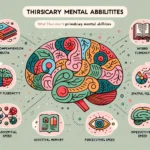Title: Gardner’s Multiple Intelligences and Cognitive Testing Introduction: In an educational landscape keen on personalization and understanding diverse learner profiles, the concept of Gardner’s Multiple Intelligences has become instrumental. This theory revolutionized the way educators, psychologists, and cognitive testers approach intelligence by suggesting a more nuanced understanding beyond traditional IQ measurements. Definition: Gardner’s Multiple Intelligences […]










